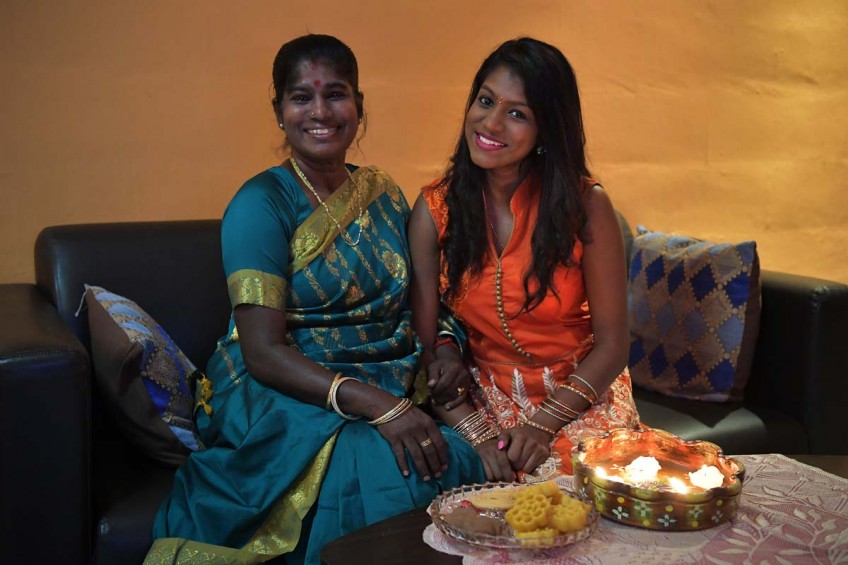Keeping Deepavali tradition alive - the crunchy way

Every year, once the firewalking ceremony has drawn to a close, Madam Manonmani Veerachami puts a wok of oil on her stove and makes murukku to welcome the Hindu festival of lights, Deepavali.
The crunchy Indian snack, a favourite with the local community regardless of race, has long been regarded as a must-have for the festival, which is celebrated today and marks the triumph of good over evil and light over darkness.
It is a tradition 53-year-old Madam Manonmani and her family have followed for generations.
"There's an old saying, 'If there's no murukku, there's no Deepavali'," she said. "Murukku is very important to us - it's part of our tradition."
Every year, Madam Manonmani spends an hour in the kitchen producing a single batch of murukku to share with her family on Deepavali, which literally means a row of lamps. The word has morphed into Diwali in parts of India.
Read also: What is Deepavali?
She also takes the time to clean her house, buy new clothes and take a sesame oil bath - other Deepavali traditions her family has followed for generations.
Though the process is time consuming, preserving Indian tradition is important to Madam Manonmani, who hopes her 25-year-old daughter will take it up.
"We have to carry it on," she said. "This is from our ancestors, these are our roots. That is why I take the trouble. Murukku I am still doing, and I shall always do, until my last Deepavali."
Across Singapore, other members of the Indian community have been busy with similar preparations, and the younger generation has been heavily involved.
For Ms Nishantini Janani, 25, an events executive at the Little India Shopkeepers and Heritage Association (Lisha), making murukku for Deepavali was a habit instilled at a young age. "For my family, it was a must to learn the traditions," she said. "When it came down to doing the murukku, my mum would sit me down and make me do it."
Her two brothers, aged 16 and 23, were not exempt. "We would sit down... learn how the ingredients come together and make it."
While some struggle to set aside time for the festival and its many traditions, Ms Nishantini views it instead as a much needed break from a fast-paced life - a rare chance to spend quality time with the family.
She is also confident that Lisha's Deepavali-related events, such as Deebam - the story of Deepavali, which is popular with young people - will help keep Indian traditions alive in the years to come.
"With so many events, the younger generation will surely not forget their heritage."

This article was first published on Oct 29, 2016.
Get a copy of The Straits Times or go to straitstimes.com for more stories.